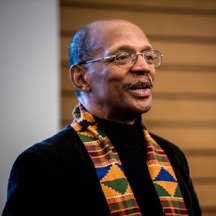According to the U.S. Constitution, the Electoral College is a body of people representing each state of the United States (and the District of Columbia) who formally cast votes for the election of the President and Vice President. The President and Vice President are the only elective federal officials not chosen by the direct vote of the American people.
On presidential election day, the first Tuesday after the first Monday in November of every fourth year, each state chooses as many electors as it has senators and representatives in Congress (In 1964, the 23rd amendment to the Constitution made it possible for the District of Columbia to vote for three electors). Therefore, with 100 senators and 435 representatives, there are 535, plus 3 members from the District of Columbia, for a total of 538 member of the Electoral College. A majority of 270 electoral votes are needed to elect both the President and Vice President.
And, of course, the three fifths provision gave southern states extra votes. Added to this was the obvious distrust by the moneyed elites--North and South--of the wisdom of the masses.
The unsavory origins of this duplicative, complicated system date back to the beginnings of the republic in a series of maneuvers designed to accommodate the disproportionate political strength of the slave-holding states. While some historians protest against this interpretation and claim that the purpose of the college is to balance the power of big states against the smaller states, it is necessary to note, for example, that the reason the state of Virginia is called the “Mother of Presidents” is because seven of the first 12 presidential elections were won by slaveholding natives of the Old Dominion, at the time the country’s largest state. Only a handful of presidential candidates have ever been elected from small states.
During the constitutional convention of 1787 in Philadelphia which set forth the structure and objectives of the constitution, slavery, according to James Madison, proved to be the original wedge issue between the northern and southern delegates. And the southern delegates threatened to leave if they did not get their pro-slavery way.
That amounted to doing whatever was necessary to protect and extend American slavery. There are five constitutional clauses that directly support slavery. For example, until it was superseded by the 13th Amendment, Article four of the Constitution required the return of fugitive slaves.
Direct presidential elections were considered and then dropped. If elections in the House of Representatives were to be based on population, enslaved Africans must be counted (even though they could not vote) so unless they could be counted in some way, perhaps indirectly, southern delegates would not sign off on the measure. Hence the infamous three-fifths compromise (which counted Africans as 3/5 of a person).
Moreover, most of the southern delegates did not favor direct elections. And, of course, the three fifths provision gave southern states extra votes. Added to this was the obvious distrust by the moneyed elites--North and South--of the wisdom of the masses.
The growing cleavage between both sides was next demonstrated in the elections of 1800 where southerners backed Jefferson and northerners backed Adams. Jefferson won in large measure because of the additional electoral votes produced by the South’s large enslaved African population.
Author Gary Wills called Jefferson, “the Negro President” in a 2003 book by that title because of the role of the enslaved in hoisting him into the White House. According to historian William Freehling, in the election of 1800, the three-fifths clause gave southerners a twelve-vote premium in the Electoral College. Only a few people at that time commented publicly on the galloping irony of the situation. The 12th Amendment to the Constitution in 1804 attempted to tinker with the obvious bias, but with debatable effect.
The Hidden Black History of the Electoral College
Praising the Past




The 1828 electoral triumph of slave-owner Andrew Jackson is also credited by many historians to the three-fifths clause. Even after slavery was abolished and the Reconstruction Amendments passed, electoral college vote manipulation would have a catastrophic impact on the lives of African Americans in the election of 1876. The election that year generated the largest popular vote in American history up to that time. Just over eight million ballots were cast. But this election, occurring on the centennial of American independence, was heavily contested. The Black vote had been brutally suppressed by the Democrats. (Most Blacks were then Republicans.)
The Republicans engaged in electoral fraud as well. The Democrat, Samuel J. Tilden, garnered the
majority of the popular vote for President over the Republican Rutherford B. Hayes but there were electoral votes--needed by the Republicans--that were in dispute in South Carolina, Louisiana, and Florida (and Oregon). After weeks of conflicting vote counts from rival party election boards, an election commission was set up to investigate the matter. After two months of work, the commission ruled in favor of Hayes. The next day, the House of Representatives did the same thing.
Tilden decided not to protest the decision. History tells us that Hayes’ victory depended on the defection of important southern Democrats to the Republican side. Tilden would keep his 184 electoral votes but Hayes would be awarded 185 electoral votes, just enough to win. A series of secret, unwritten deals were made between the two parties and codified as the “Hayes-Tilden Compromise” or the “Compromise of 1877.” To complete the bargain and give the Republicans the Executive Mansion, they had to agree to remove the last of the federal troops from the South that were there to protect the rights of the newly freed African-Americans.
Ironically, this infernal bargain was agreed to at the Wormley Hotel, an elegant, Black run establishment two blocks from the White House. D.E. Shi and Gregory Tindall describe what happened next in their book “America, A Narrative History:” “Over the next thirty years, the protection of black civil rights in the South crumbled. As Henry Adams, a former Louisiana slave, observed in 1877 ‘the whole South--every state in the South-- has got [back] into the hands of the very men who held us as slaves.’
New white state governments rewrote their constitutions, rid their administrations of ‘carpetbaggers, scalawags, and blacks’, and cut spending. ‘The Yankees helped free us, so they say.’ a former North Carolina slave named Thomas Hall remembered, ‘but [in 1877] they let us be put back into slavery again.”
For many, however, the history given above is secondary to the larger question of whether, in this day and time, there should even be an Electoral College. Many believe it’s a cumbersome relic of a bygone era, unnecessary in the computer age. Majority rule is the answer they say.
But of course, even today, popular direct elections for president and vice president pose problems of their own. Each of the 51 separate electing authorities has its own rules on such things as registration and mail-in and absentee balloting. Perhaps the ultimate question is how much longer will American voters be satisfied with leaders who have been spurned by a majority of the voters.
Note: When inaugurated on January 20, 2021 Joe Biden will become the first president from Delaware, the first state to join the Union and the second smallest. The first presidential election was in 1789 and won by George Washington, a slave-owner from Virginia, the Old Dominion.
See Also: Black Voter Suppression, Then and Now by CR Gibbs.
To complete the bargain and give the Republicans the Executive Mansion, they had to agree to remove the last of the federal troops from the South that were there to protect the rights of the newly freed African-Americans.
The Republicans engaged in electoral fraud as well. The Democrat, Samuel J. Tilden, garnered the
majority of the popular vote for President over the Republican Rutherford B. Hayes but there were electoral votes--needed by the Republicans--that were in dispute in South Carolina, Louisiana, and Florida (and Oregon). After weeks of conflicting vote counts from rival party election boards, an election commission was set up to investigate the matter. After two months of work, the commission ruled in favor of Hayes. The next day, the House of Representatives did the same thing.
Tilden decided not to protest the decision. History tells us that Hayes’ victory depended on the defection of important southern Democrats to the Republican side. Tilden would keep his 184 electoral votes but Hayes would be awarded 185 electoral votes, just enough to win. A series of secret, unwritten deals were made between the two parties and codified as the “Hayes-Tilden Compromise” or the “Compromise of 1877.” To complete the bargain and give the Republicans the Executive Mansion, they had to agree to remove the last of the federal troops from the South that were there to protect the rights of the newly freed African-Americans.
Ironically, this infernal bargain was agreed to at the Wormley Hotel, an elegant, Black run establishment two blocks from the White House. D.E. Shi and Gregory Tindall describe what happened next in their book “America, A Narrative History:” “Over the next thirty years, the protection of black civil rights in the South crumbled. As Henry Adams, a former Louisiana slave, observed in 1877 ‘the whole South--every state in the South-- has got [back] into the hands of the very men who held us as slaves.’
New white state governments rewrote their constitutions, rid their administrations of ‘carpetbaggers, scalawags, and blacks’, and cut spending. ‘The Yankees helped free us, so they say.’ a former North Carolina slave named Thomas Hall remembered, ‘but [in 1877] they let us be put back into slavery again.”
For many, however, the history given above is secondary to the larger question of whether, in this day and time, there should even be an Electoral College. Many believe it’s a cumbersome relic of a bygone era, unnecessary in the computer age. Majority rule is the answer they say.
But of course, even today, popular direct elections for president and vice president pose problems of their own. Each of the 51 separate electing authorities has its own rules on such things as registration and mail-in and absentee balloting. Perhaps the ultimate question is how much longer will American voters be satisfied with leaders who have been spurned by a majority of the voters.
Note: When inaugurated on January 20, 2021 Joe Biden will become the first president from Delaware, the first state to join the Union and the second smallest. The first presidential election was in 1789 and won by George Washington, a slave-owner from Virginia, the Old Dominion.
See Also: Black Voter Suppression, Then and Now by CR Gibbs.
Advertisers | Contact Us | Events | Links | Media Kit | Our Company | Payments Pier
Press Room | Print Cover Stories Archives | Electronic Issues and Talk Radio Archives | Writer's Guidelines






